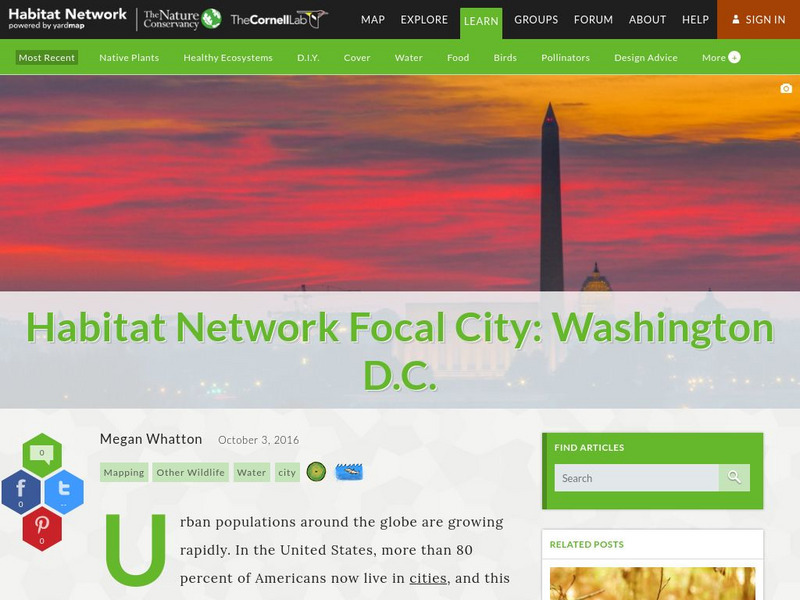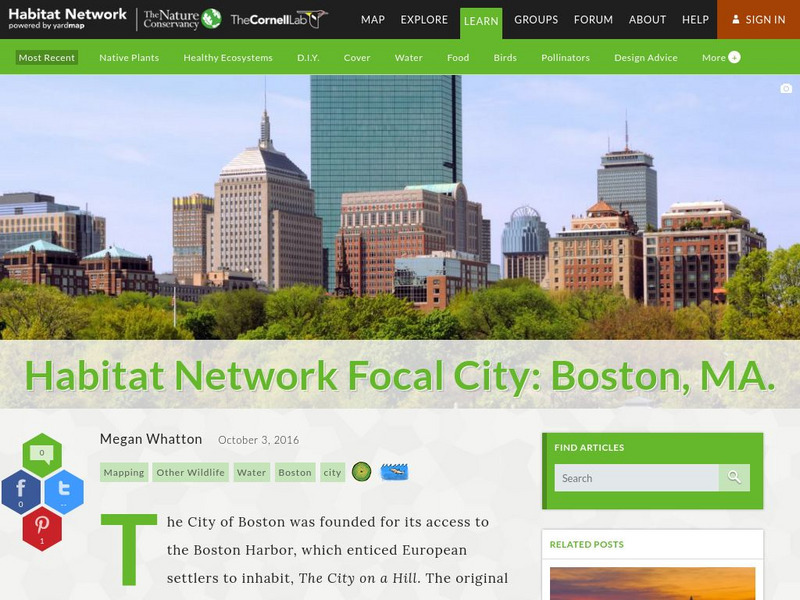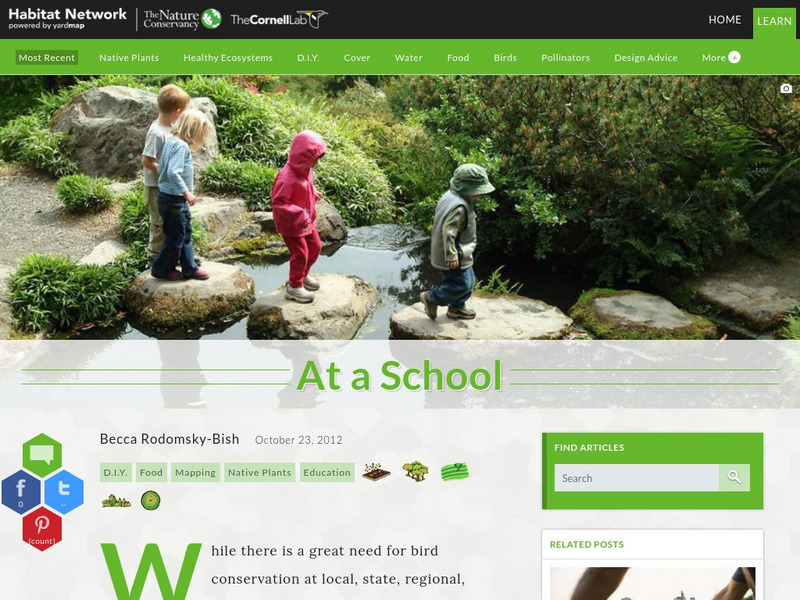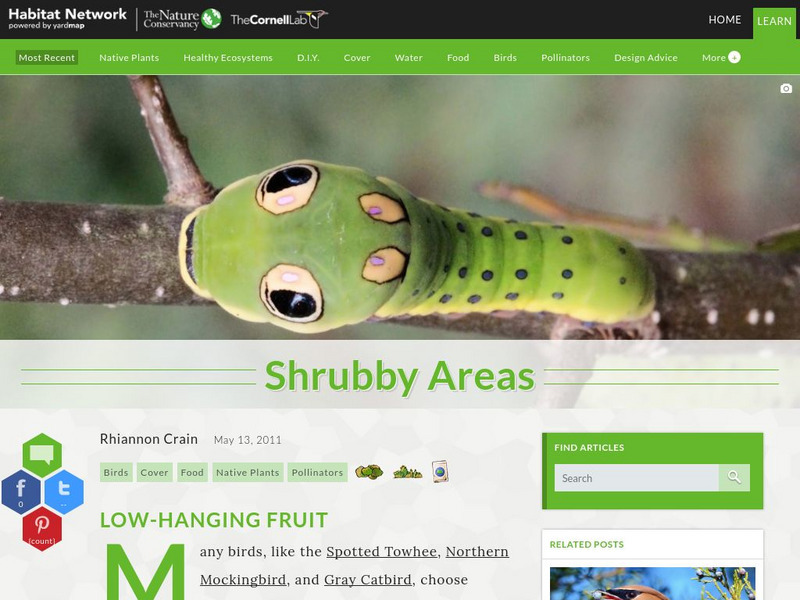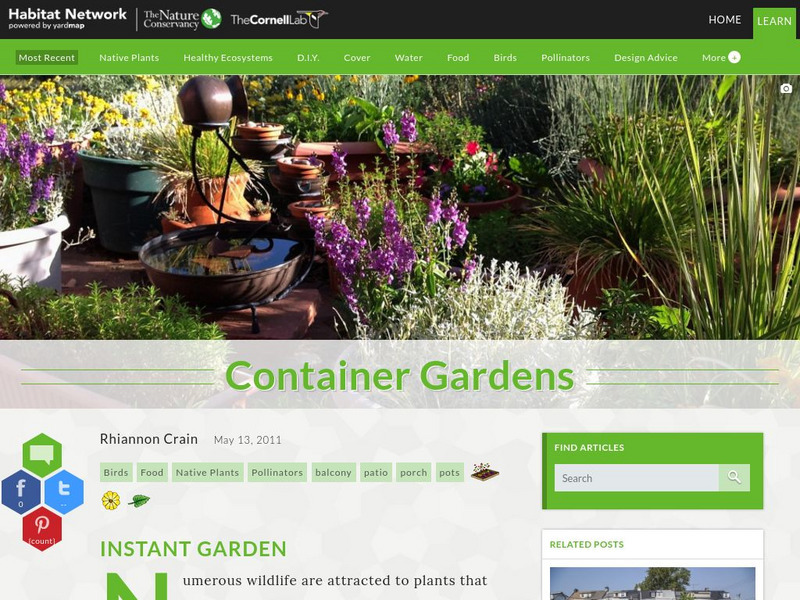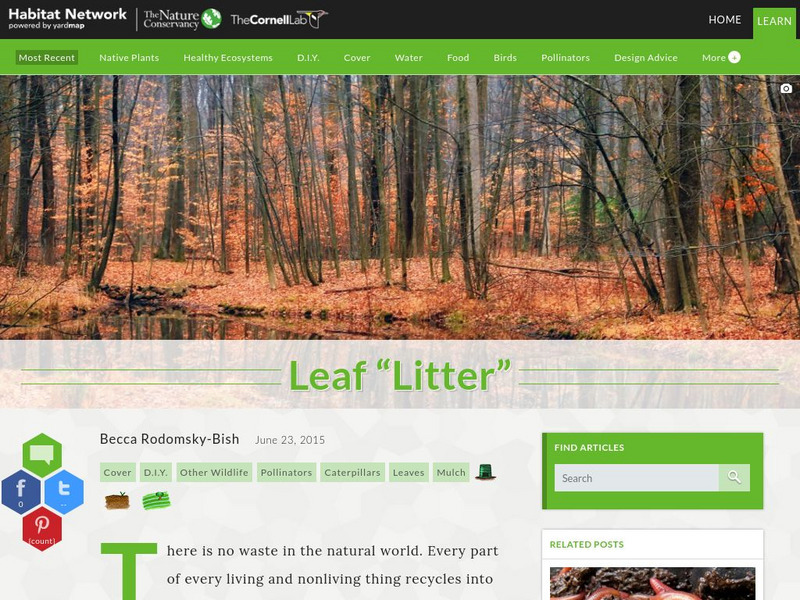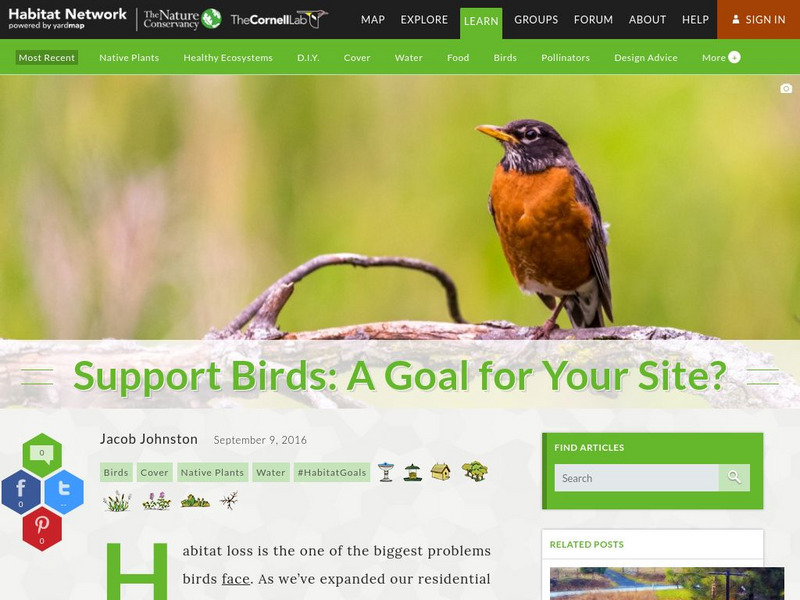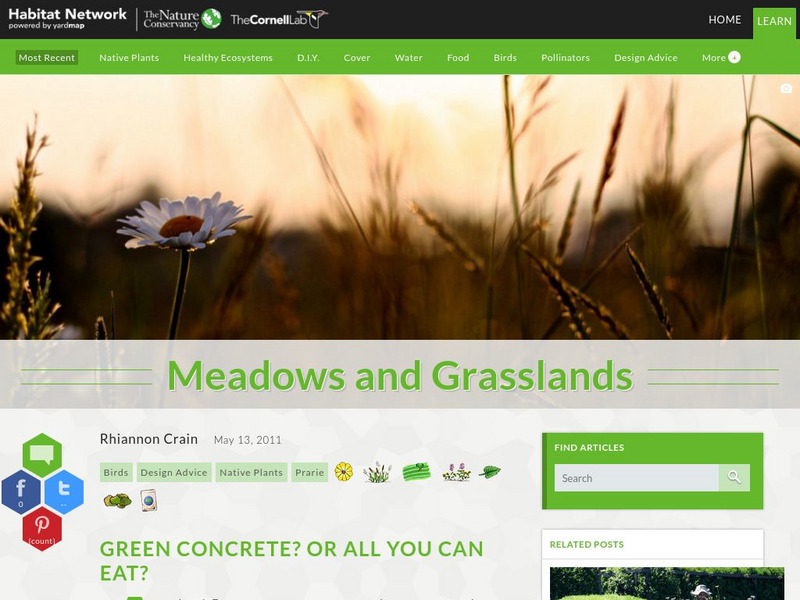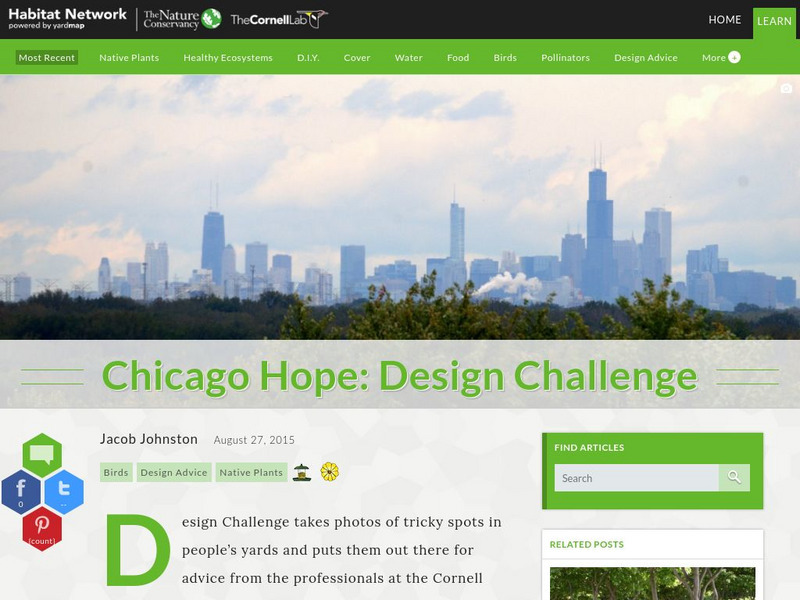National Wildlife Federation
National Wildlife Federation: Bright Lights, Bird City
Birds of prey--raptors--are increasingly making urban areas their own. Here is an interesting look at a change of habitat for these magnificent birds.
National Wildlife Federation
National Wildlife Federation: Survival by Handout?
Endangered species are often elusive and human sightings of the animals can be rare. The San Joaquin kit fox, however, listed as endangered since 1967 has learned to survive in urban and suburban areas.
Cornell Lab of Ornithology
Habitat Network: Habitat Network Focal City: Philadelphia, Pa
The Habitat Network focuses on the city of Philadelphia. As it grows, it puts tremendous pressure on natural resources, essentially increasing the importance of protecting and restoring them.
Cornell Lab of Ornithology
Habitat Network: In the City
Learn how to create a backyard habitat in an urban setting.
Cornell Lab of Ornithology
Habitat Network: Habitat Network Focal City: Washington d.c.
See how this Northeastern city's habitat has developed and changed throughout its history.
Cornell Lab of Ornithology
Habitat Network: Habitat Network Focal City: Boston, Ma.
See how this coastal city's habitat has developed and changed throughout its history.
Cornell Lab of Ornithology
Habitat Network: New York Swing: Design Challenge
Find out how to transform a common-style backyard area to include plants that will invite wildlife like songbirds, butterflies, and hummingbirds.
Cornell Lab of Ornithology
Habitat Network: At a School
Get some help planning a wildlife-friendly outdoor area at school.
Cornell Lab of Ornithology
Habitat Network: Shrubby Areas
Find out how to foster diversity in wildlife by providing the right type of vegetation for shrubby areas.
Cornell Lab of Ornithology
Habitat Network: Container Gardens
Learn how to maximize the wildlife in a small space by planting a container garden.
Cornell Lab of Ornithology
Habitat Network: On an Abandoned Lot
Learn some simple things that will improve the composition of plants on vacant, urban lots.
Cornell Lab of Ornithology
Habitat Network: Find Out How Your Lawn Measures Up
Based on a Calfornia ordinance that limits the size of lawns, Habitat Network offers some alternatives for a species-rich backyard.
Cornell Lab of Ornithology
Habitat Network: The (Un)importance of Lawn
Find out why it is important to grow more than just a lawn full of grass in a backyard habitat.
Cornell Lab of Ornithology
Habitat Network: Habitat Feature: Bare Earth for Native Pollinators
Find out why keeping a part of your yard as bare ground is important for providing nesting habitat for native bees.
Cornell Lab of Ornithology
Habitat Network: Leaf Litter
Leaf-litter plays many important ecological roles. Find out some of the ways leaves are secretly at work in your gardens and parks.
Cornell Lab of Ornithology
Habitat Network: Seeds, Glorious Native Seeds
A guide to finding the right seeds for a particular backyard habitat.
Cornell Lab of Ornithology
Habitat Network: 8 Reasons to Plant Something New
Read about eight habitat-enhancing reasons to expand the plant diversity in a backyard.
Cornell Lab of Ornithology
Habitat Network: Support Birds: A Goal for Your Site?
Find out what citizen scientists can do to provide appropriate habitats for native birds.
Cornell Lab of Ornithology
Habitat Network: Get to Know the Plants in Your Yard With These Plant Id Tips
A guide that walks through some of our recommended tactics when identifying plants.
Cornell Lab of Ornithology
Habitat Network: Native Lawn Ftw! (For the Win)
Find out about the advantages of planting native grasses in a lawn.
Cornell Lab of Ornithology
Habitat Network: Meadows and Grasslands
Learn how to create a backyard habitat which provides a more meadow-like environment for birds.
Cornell Lab of Ornithology
Habitat Network: In Your Yard
Use this guide to create a habitat that attracts and sustains various bird species.
Cornell Lab of Ornithology
Habitat Network: Chicago Hope: Design Challenge
Design Challenge takes photos of tricky spots in people's yards and puts them out there for advice from the professionals at the Cornell Lab of Ornithology. Check out this urban landscape.



